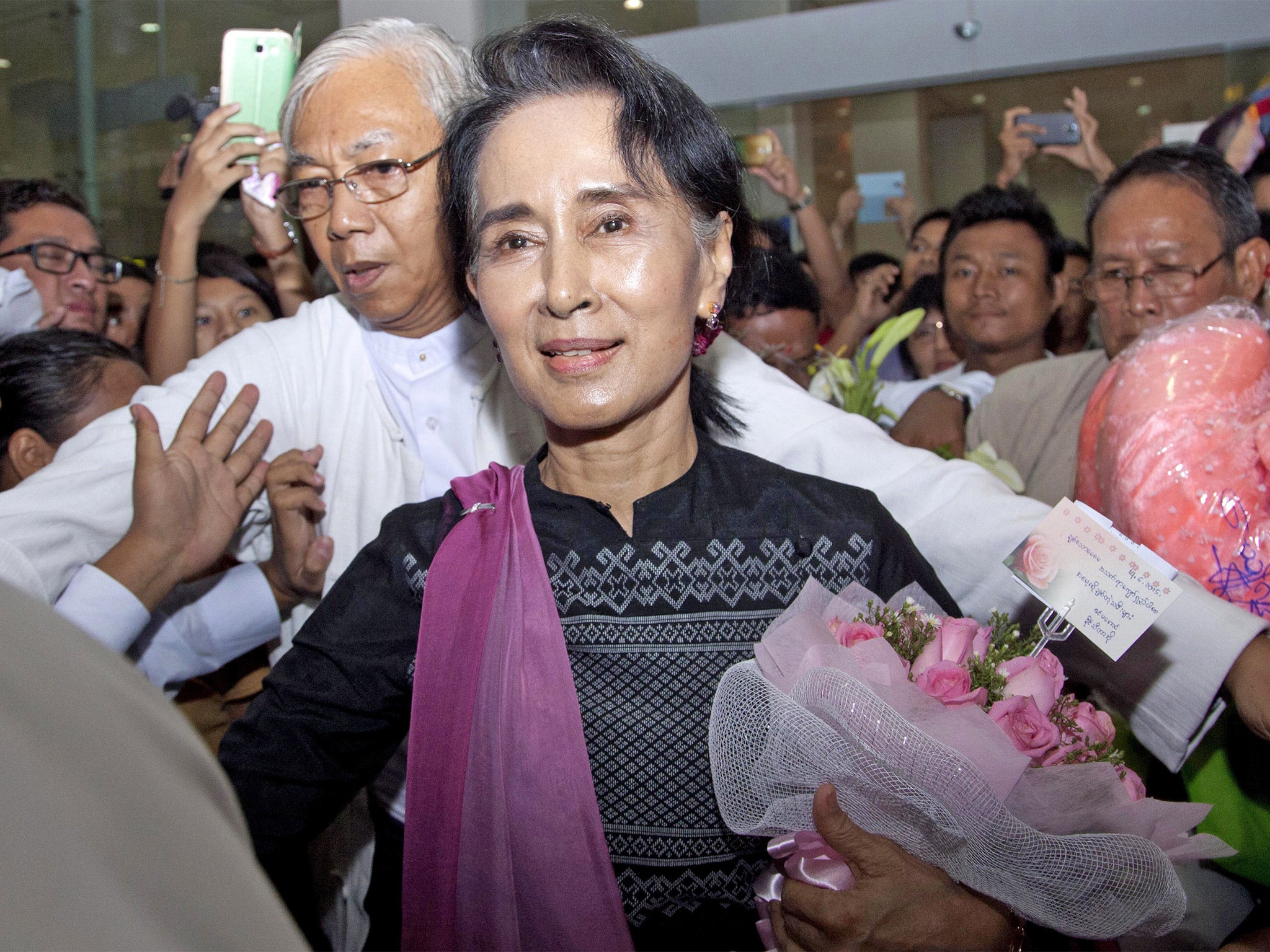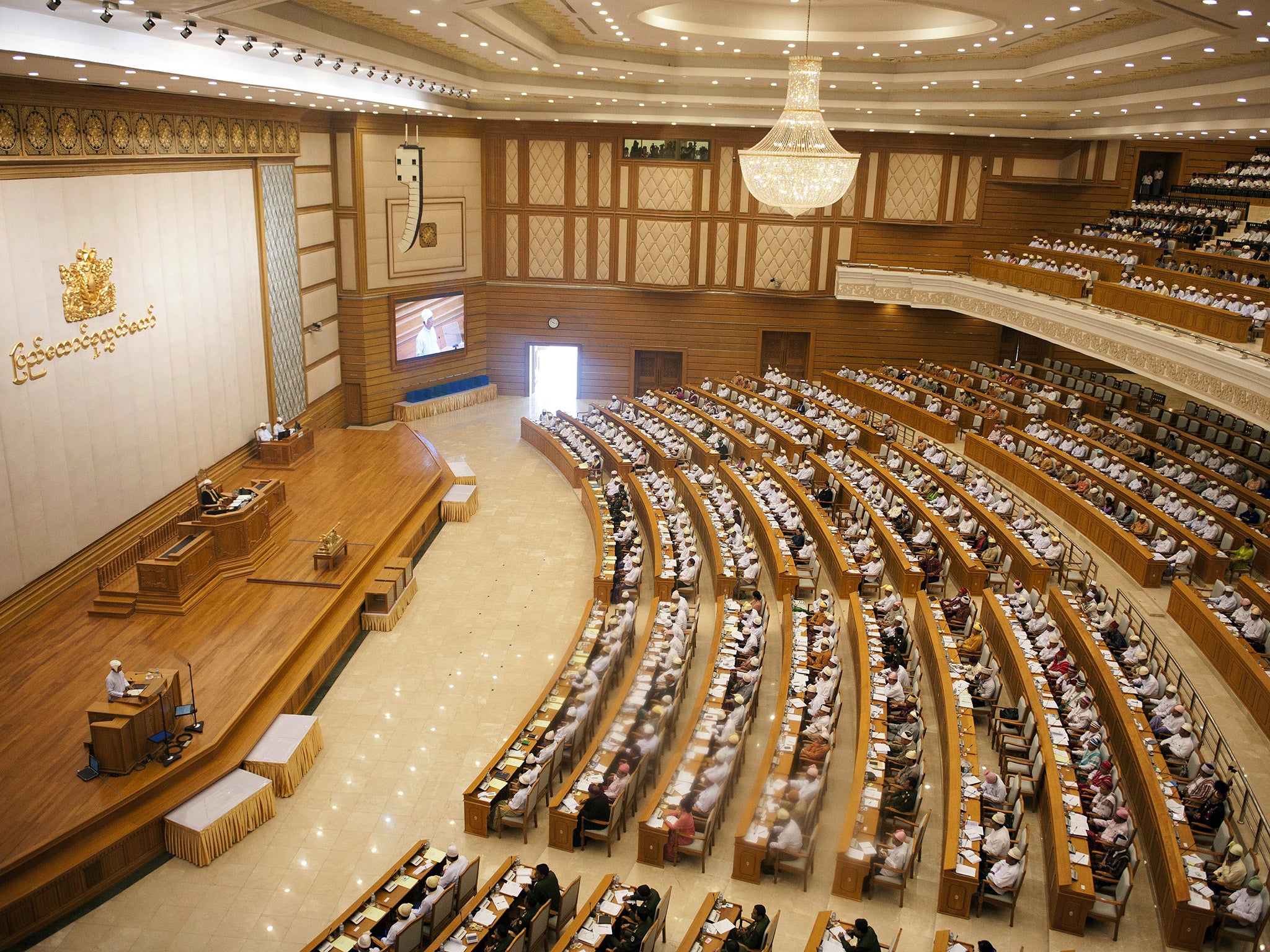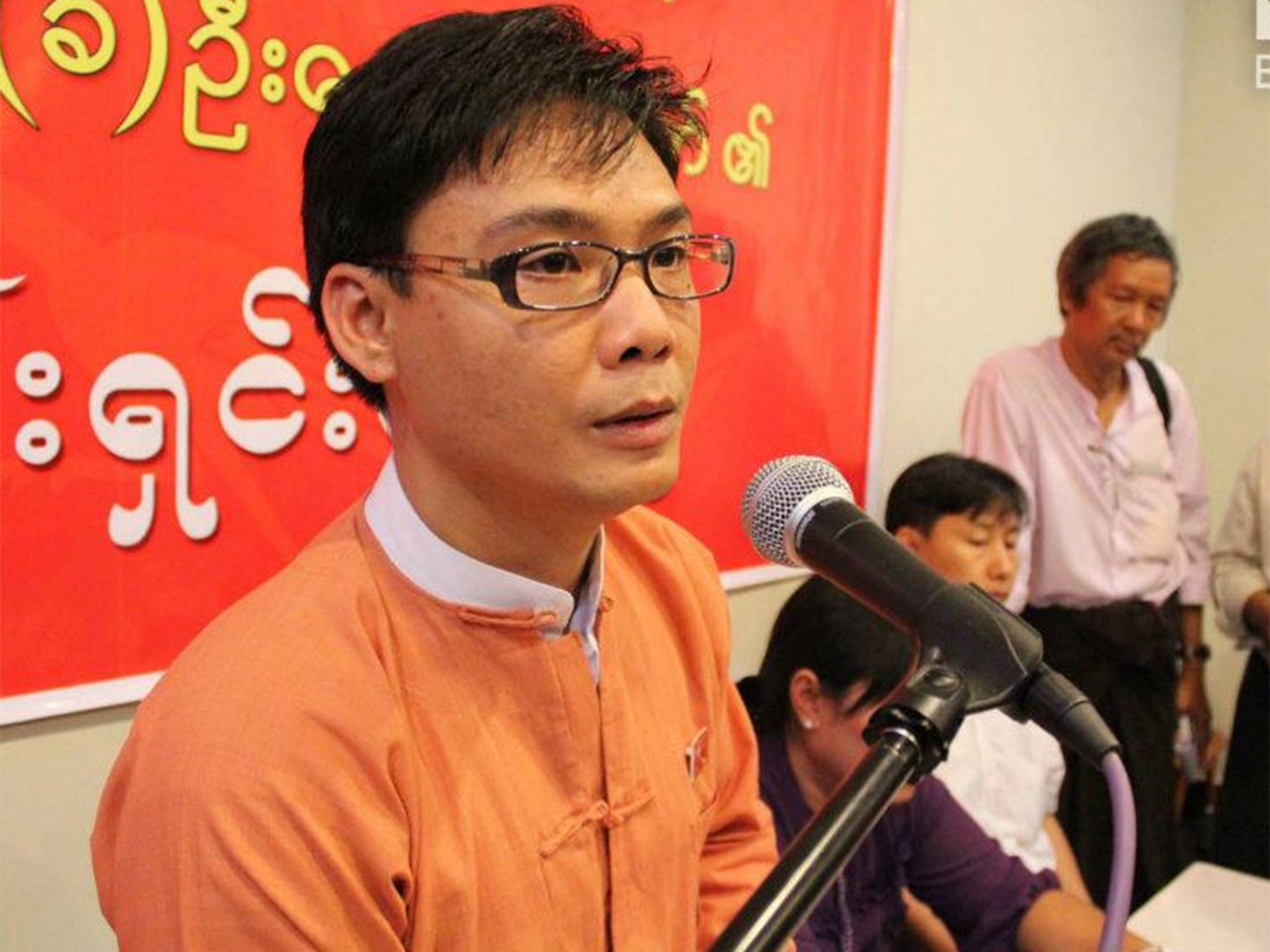Can Burmese democracy ever live up to its 50-year billing?
In the third of his series of reports, Peter Popham meets the young generation of Aung San Suu Kyi's government-in-waiting and discovers how their inexperience has left business leaders and foreign diplomats alike with a bad case of the jitters

Your support helps us to tell the story
From reproductive rights to climate change to Big Tech, The Independent is on the ground when the story is developing. Whether it's investigating the financials of Elon Musk's pro-Trump PAC or producing our latest documentary, 'The A Word', which shines a light on the American women fighting for reproductive rights, we know how important it is to parse out the facts from the messaging.
At such a critical moment in US history, we need reporters on the ground. Your donation allows us to keep sending journalists to speak to both sides of the story.
The Independent is trusted by Americans across the entire political spectrum. And unlike many other quality news outlets, we choose not to lock Americans out of our reporting and analysis with paywalls. We believe quality journalism should be available to everyone, paid for by those who can afford it.
Your support makes all the difference.In less than six months, there is a strong chance that Burma will have its first truly democratic government in more than half a century. International observers will be in place at polling stations for the election, so cheating will be difficult, and as a result Aung San Suu Kyi’s National League for Democracy (NLD) is likely to emerge as the largest party, if not the outright winner.
After 48 years of military rule and five more of pseudo-democratic government by ex-generals, at last the dream of 1988 that powered an Oxford housewife into frontline politics will become reality.
And the world is running for cover.
Diplomats veil their concerns in diplomatic language but the message is unmistakeable. “In some ways next year will be more difficult,” said one, on condition of anonymity, “especially if we have a different form of government. Expectations are so high that it is going to be hard for anyone to satisfy them. Many people think that, if Suu Kyi is in charge of the country, a lot of problems will very quickly be resolved and people’s lives will get better. Obviously it won’t be like that because everything takes time.”
A British businessman working as a middleman between Europe and Burma was blunter. “It’s very difficult because no one knows what’s going to happen,” he said. “Oil and gas exploration licences have been sold but everyone else is waiting to see what happens after the election. They are leery about committing themselves until they know.”
Ms Suu Kyi has said little to the media about her plans for government if she wins power, but in comments to students in parliament last month, she tried to dampen unreasonably high hopes.

“Our economy is bad nowadays: everybody wants money and a comfortable life, including me,” she told them. “But our country is like a poor family in which parents and children must work together to improve family life. Everybody must co-operate with everybody else. We will have to struggle for one or two generations more to obtain a better life. Our country lags behind other countries. We will have to try hard.”
But moralistic homilies will only take the country so far and, until now, the NLD has been very short on commitments. The only concrete suggestion by Ms Suu Kyi herself that I came across during my recent visit – it fell short of a promise – concerned the national flag that was introduced in 2010. “I don’t like this flag,” she told a crowd in Kachin state, in the far north. “The flag should belong to the Myanmar people. The NLD will try to change it if we have the chance.”
To be fair, none of her party’s electoral rivals has produced detailed programmes either. Instead of proposals, the NLD is campaigning on a pledge of honesty and humility. As one of their MPs, former hip-hop musician Phyo Zayar Thaw, told me: “The main thing is honesty, and we are really honest. Some people from abroad think the NLD doesn’t have a full range of policies. But from my point of view, if you are very sincere and honest, that’s the main thing.”
He also conceded that there was justice in another frequent criticism of the party – that it lacks “capacity”: people with the right qualifications and experience. “It’s true that some people in the NLD are not qualified to run the country,” he said. “But this is not a real problem: there are also people like U Tin Oo who are very experienced.”
But U Tin Oo also proves the critics’ point. One of the co-founders of the NLD with Ms Suu Kyi, the retired general is 88 years old. Perhaps Ms Suu Kyi’s most loyal lieutenant, and the party’s deputy leader, he was forced out of the army by the dictator General Ne Win in 1976 and, apart from his roles in the party, he has had no working experience since then.

As Zayar Thaw admits, there is a gaping age gap in the party between the founding generation and inexperienced young people who joined after Ms Suu Kyi’s release from detention in 2010. “We admit that our generation has an ability gap,” he said. “But we are working with the older generation to fill it.”
The diplomat quoted earlier confirmed the concerns about the capacity issue. “The party has a very limited number of people who are qualified in certain technical fields,” he said. To compensate, Ms Suu Kyi “would potentially need to keep on some of those from the present government”. Equally worrying to some, he said, were the NLD’s potential, unspoken ambitions. “A lot of people believe [Ms Suu Kyi] wants to sweep away everything that has been achieved – to throw everything away and start afresh. Businessmen here will tell you they are worried.”
It is not only electoral vagaries that are feeding the jittery mood among those who have seen Burma emerge from the shadows and shake off sanctions in the past five years. In a country where arbitrary government has been the rule for half a century, people still expect the unexpected. And they are right to do so. President Thein Sein previously promised that he would hold a referendum on the constitution last month. May came and went and nothing happened; no explanation was given. And after the successful and relatively fair by-elections of April 2011, in which Ms Suu Kyi and more than 40 NLD colleagues won seats, more by-elections were due to be held in 2014. They were cancelled, however, supposedly on grounds of cost.
It is typical of the way the country is run that even now, less than six months before the event, nobody knows for sure exactly when the election will be held. As a result, melodramatic scenarios gain wide circulation. Among those I collected were the following:
First, Ms Suu Kyi and her party will refuse to take part in the general election because President Thein Sein has broken his word over amending the constitution. In interviews Ms Suu Kyi has refused to rule out this drastic course, but a senior party figure agreed with me that, in practice, it would be political suicide.
Another theory has it that after the election, with Ms Suu Kyi barred from becoming President by the constitution, she will form a coalition government co-headed by the speaker of parliament’s lower house, a decorated former general called Shwe Mann.
A third suggests Thein Sein will postpone the election, perhaps on the grounds that the ceasefire with armed ethnic groups, on which he pins his hopes, is a work in progress and so the poll cannot be fair.
Or perhaps the election will be aborted by another coup d’etat, because the military still cannot bear the thought of ceding power to civilians.
None of these possibilities is out of the question. In fact, the only certainty on which one would feel like staking money is that, whatever the election result, the military will remain very powerful.
That is guaranteed by the constitution, which entrusts the four most important ministries, including home affairs, to the military, gives a quarter of parliamentary seats to serving soldiers and empowers a military-dominated security council to declare emergency law – in effect a constitutional coup – whenever it fancies.
For many, including some who would not admit it, this is a comforting thought.
Tomorrow: Meet the former general widely expected to be Burma’s next president
Join our commenting forum
Join thought-provoking conversations, follow other Independent readers and see their replies
Comments